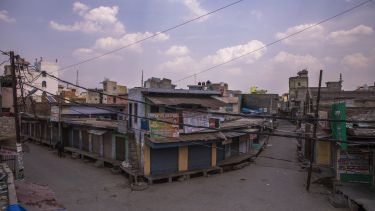Managing Covid-19 in India's Cities: Reshaping people's everyday lives in poorer urban neighbourhoods
A project by Glyn Williams

Covid-19 is transforming lives and livelihoods globally, and is particularly challenging in cities of the Global South. Urban spatial practices – managing social distancing, density and containment – and everyday governance – ensuring policies’ translation into ‘on the ground’ effects – are central to these challenges.
Taking a comparative urbanism approach, this study examines how local management of the crisis is reshaping people’s spatial practices in poorer urban neighbourhoods. Based in three Indian cities with contrasting experiences of the pandemic, Ahmedabad (Gujarat), Chennai (Tamil Nadu) and Trivandrum (Kerala), it draws on an established network of researchers with extensive experience of each city to generate context-rich understandings. It investigates the experiences of front-line staff, poorer residents and urban managers, combining this with secondary data to provide detailed insights into the challenges cities face, and to explore sustainable, socially-inclusive responses to Covid-19 that will be rapidly translated to academic and policy audiences.
This project has been funded by the British Academy, and will run from 01/01/2021 to 31/12/2022. Co-Investigators are Binitha Thampi (Indian Institute of Technology, Madras), Darshini Mahadevia (Ahmedabad University) and Karen Coelho (Madras Institute of Development Studies).
